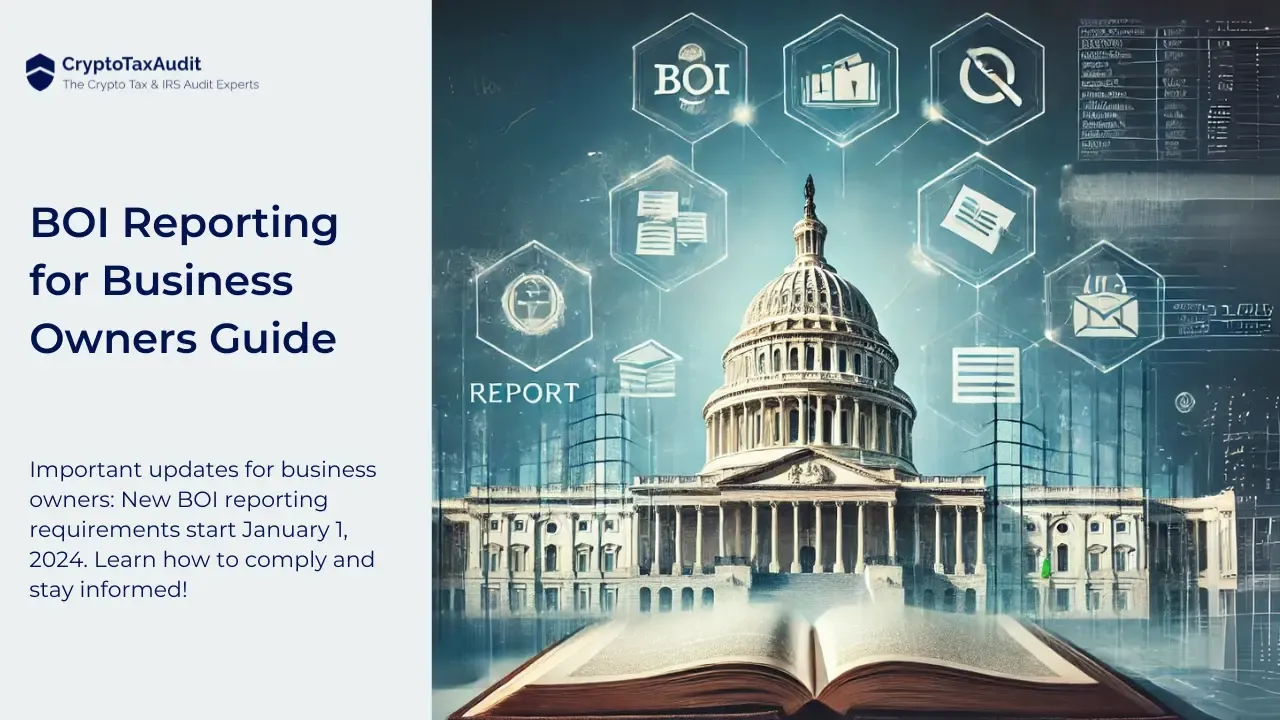
The IRS has intensified its efforts to enforce tax compliance among cryptocurrency holders including enhanced crypto trader tracking. Learn the major strategies used by the IRS, the potential consequences of non-compliance, and how you can satisfy your crypto tax obligations. (TCDS-08)
IRS enforcement methods.
Cryptocurrency has gained significant popularity in recent years, but with its rise, the Internal Revenue Service (IRS) has intensified its efforts to enforce tax compliance among digital asset owners. In this article, I explore the two major strategies used by the IRS, talk about their enforcement tactics, and discuss the potential consequences of non-compliance. As a cryptocurrency holder, you need to understand these issues to stay on the right side of the law.
Strategy 1: Audits as a method of enforcement.
The IRS primarily relies on audits to identify individuals who underreport their income on tax returns. If you file a tax return or report less income than the IRS has information about, you may be at risk of an audit. The agency uses a reporting threshold, which, for crypto exchanges and brokerages, currently stands at $20,000 in income or 200 trades/transactions. It's important to note that this threshold is set to be reduced to $600, potentially inundating the IRS with an overwhelming number of additional reports.
Strategy 2: Criminal enforcement for non-filers and hiders.
Criminal enforcement is becoming increasingly prevalent. In this approach, the IRS focuses on individuals who either fail to file a tax return altogether or omit their crypto income. The burden of proof for the IRS is to demonstrate that you did not report your income. Once they establish this, they can refer your case to the Department of Justice, leading to potential charges of tax evasion or tax fraud. This is the easiest approach for the IRS since they don't even have to recalculate your crypto gains and losses, which is a cumbersome and time-consuming process.
The consequences of non-compliance.
The consequences of non-compliance with IRS regulations can be severe. Criminal charges for failing to report income can result in a quarter-million-dollar initial charge and three to five years of imprisonment per year of infraction. Plea bargaining is often the path individuals are advised to take, as it presents a potentially more favorable outcome than going through a protracted audit process. However, it's crucial to understand that even a plea bargain can lead to significant financial penalties, imprisonment, and, most notably, the lifelong stigma of being a felon.
IRS investment in enforcement.
Recognizing the magnitude of non-compliance in the crypto space, Congress and the White House have approved a staggering $80 billion funding increase for the IRS, with $46 billion specifically allocated to enforcement activities targeting digital asset owners. This allocation surpasses the annual budget of the FBI four times over. The IRS plans to expand its criminal enforcement group by adding approximately 4,800 officers, and the Department of Justice has hired 150 lawyers to support these efforts. Undoubtedly, the IRS's commitment to enforcing compliance in the crypto sector is significant.
Tracking and obtaining information.
The IRS has been actively gathering information about cryptocurrency holders, both through summonses and undisclosed mechanisms, acquiring data from exchanges regarding U.S. account holders. While they may not directly know your identity, they can trace your activities based on the use of a U.S. IP address. The IRS connects the dots using sophisticated tracking programs and can identify potential discrepancies between reported income and actual crypto transactions.
Expanding oversight.
The IRS is expanding its oversight not only to U.S.-based exchanges but also to foreign ones. Through various means, including enforcement of the Foreign Account Tax Compliance Act (FATCA), the agency seeks to obtain information from foreign exchanges to ensure compliance among U.S. taxpayers. Additionally, transactions on platforms like PayPal are subject to reporting, which places an additional burden on taxpayers to provide detailed explanations of any income received.
Avoiding the consequences.
The IRS's focus on enforcing tax compliance among cryptocurrency holders is clear. The agency has allocated significant resources to target non-compliance, emphasizing criminal enforcement as a cost-effective method. It is essential for individuals involved in the crypto space to understand their tax obligations, report their income accurately, and seek professional guidance when necessary. By doing so, they can avoid potentially devastating consequences and ensure compliance with the ever-evolving regulations surrounding cryptocurrencies.
DISCLAIMER: Opinions and perspectives of the author, host, and guests. It should not be construed as U.S. taxpayer advice. There are often multiple interpretations of tax law. Various strategies may be suited to specific individuals and for particular situations. Seek out professional tax, legal, or financial advice from CryptoTaxAudit or from other reputable companies.




